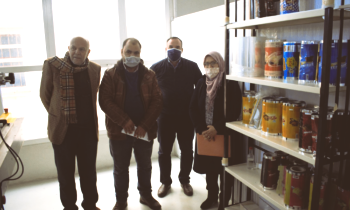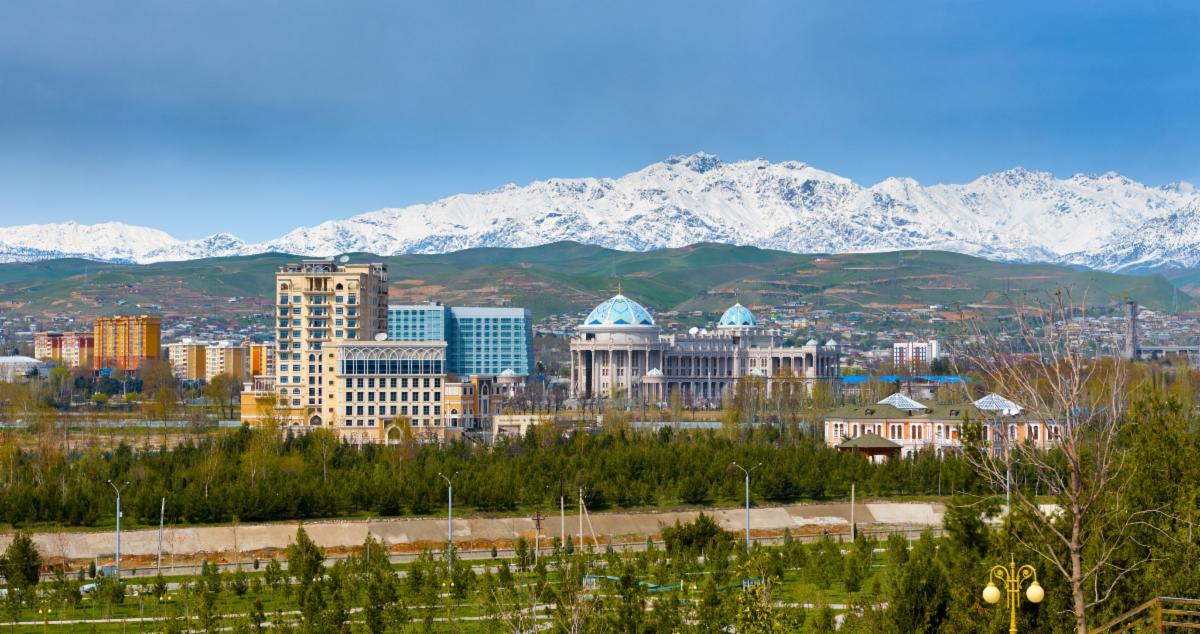Jordan: Building Resilience in the Nonprofit Sector against
Terrorism Financing

The Jordanian nonprofit sector is particularly vulnerable to money laundering/terrorism financing (ML/TF) risks. With over 6,000 nonprofit organizations (NPOs) registered in Jordan, and the loss of access to oil fields in Syria and Iraq and plummeting oil prices, terrorist groups have shifted their attention to NPOs as fundraising vehicles.
To ensure the nonprofit sector is resistant to ML/TF, and that legitimate NPOs can safely pursue their mission, FSVC is providing technical assistance to the Jordanian NPO Registry to conduct a risk assessment of the nonprofit sector and classify NPOs into risk categories.
In January, FSVC worked with the NPO Registry to develop a screening program for all NPOs, which includes a review of the NPO founders and Board members against sanctions lists. FSVC then trained 70 NPO supervisors throughout Jordan in how to implement the screening program. FSVC highlighted that NPOs play a critical role in the fight against ML/TF as the first line of defense against financial abuse from malign groups.
This program is implemented with funding from the U.S. Department of State’s Counterterrorism Bureau.
Tunisia: Strengthening the Local Entrepreneurial Ecosystem

Staff from the small business United Food Company
Tajikistan: Improving Fiscal Transparency in the Extractive Industries

Dushanbe, Tajikistan
Tajikistan is rich in natural resources: more than 800 mineral deposits have been discovered, explored and/or partially prepared for industrial development, ranging from gold to silver, tungsten, coal, lead, tin, mercury and rock salt.
Tajikistan initiated the process of joining the Extractive Industries Transparency Initiative (EITI) in 2011. Over the past 10 years, the country has made progress towards meeting the EITI standard, notably thanks to significant contribution from civil society to the EITI process. The country’s legal framework still suffers, however, from major weakness, including in the area of beneficial ownership reporting.
To help Tajikistan meet the EITI standard and strengthen transparency and accountability in the extractive industry sector, FSVC recently launched a two-year program with funding from the U.S. Embassy in Dushanbe. In January, FSVC conducted an assessment of the Tajik legal and regulatory framework for the declaration and reporting of beneficial ownership and Politically Exposed Persons (PEPs) in the extractive industry sector. FSVC then drafted a report identifying main gaps and weaknesses, and proposing recommendations to address them. This report will guide FSVC’s work throughout the program to provide tailored, targeted assistance to counterparts.
Albania: Strengthening Coordination to Combat Money Laundering

Participants at the FSVC virtual launch event, as seen on the Albanian Minister of Finance’s laptop. January 2021
The Albanian financial framework suffers from a complex array of vulnerabilities to ML/TF. Successfully tackling these weaknesses requires a multi-stakeholder approach involving the Bank of Albania, the Financial Intelligence Unit (FIU), the Albanian Financial Supervisory Authority and private sector reporting entities.
To help Albanian financial institutions strengthen the anti-money laundering and combating the financing of terrorism (AML/CFT) framework, FSVC, with funding from the U.S. Department of State’s Counterterrorism Bureau, recently launched a two-year program to help Albanian supervisory authorities better assess ML/TF risks, efficiently allocate resources and strengthen inter-agency coordination. FSVC’s program will also build awareness and capacity amongst private sector reporting entities to increase the detection and reporting of ML/TF.
On January 29, FSVC organized a virtual launch event of the program with the Minister of Finance and Economy, Anila Denaj, the Governor of the Bank of Albania, Gent Sejko, as well as representatives of the Financial Supervisory Authority. Speaking on behalf of FSVC at the event were President & CEO Andy Spindler, Managing Director Chad Kilbourne and Tirana-based Regional Director Erison Kotini. Minister Denaj, along with other participants, emphasized the commitment of the Albanian government to implementing international standards in AML/CFT. The program builds on FSVC’s extensive knowledge of the local financial system, gained through two decades of continuous work to assist the financial regulatory authorities in Albania.